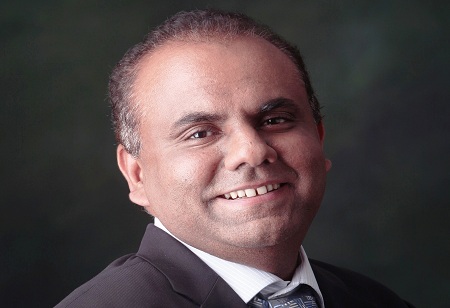Sanjay Sudhakaran, Vice President - Digital Energy, Schneider Electric India, in an interaction with Sudhakar Singh, Editor, Industry Outlook, shares his views on the changing approach towards energy management, the challenges involved and how to address them.
How do you see the current market of industrial energy management? What are the major factors driving its growth?
Urbanization is driving the building infrastructure growth and buildings are transforming more and more into modern infrastructures. They are focusing not just on
sustainability in terms of energy usage, but also on the well-being of occupants within the premises. On the other side, there is a huge push by the Government of India to revitalize our manufacturing sector, because manufacturing sector is the largest employment provider and can fuel growth over a long time.
I think we are currently over reliant on services, and manufacturing has not performed that well, in the last decade, as it should have. It is important for manufacturing to be potent in India for the country to be able to provide employment for the population in the long run. I think the government is working hard to incentivize that. With trade barriers in terms of imports, and incentives for local manufacturing, it is clearly driving the demand. But in the end, it is very important for us to be competitive in the global market, because that is the biggest incentive we can have.
In India, we have talent; we have engineering talent, we have manufacturing talent, but at the end of the day, we need to be competent. And to be competitive, what is important is sustainability in two senses – in terms of reduced operation costs or energy costs, which is good for the business as well as for the environment; and on the other side, more reliability in terms of uptime, contact-less maintenance, and lesser operating costs on that front.
If you look at it from a technology standpoint, what are the major challenges faced by the manufacturing industry? And how, how can those challenges be addressed?
I think, digital is a technological advancement that is moving at a fast pace, and will continue to move so even at an accelerated pace. We are expected to have almost 5 billion connected devices very soon. So, IoT and software are very clear technological advancements that are sure to benefit the industry. However, what the industry is actually struggling with is modularity. There are people who come up with a massive outlay, offering to digitize your processes end to end and putting up a three year CapEx plan saying that by the time you are finished with it, you will get the desired results. Now, the question which is in the minds of the people operating the plants is that how good is that ROI?
So, the apprehension is both on the process side, as well as on the energy management side.
What the clients are actually looking for is modularity, in terms of investments; realizing the return on investments, and then re-investing, to achieve sustainability which has become must to do because boards are pushing their companies to be more and more sustainable. Ultimately, sustainability is going to be engraved as one of the top most agendas of all the CEOs globally. There is a clear intent that we must do it. You need to be able to get the ROI from the investments that you are doing to facilitate better and more efficient plants, and better maintenance.
